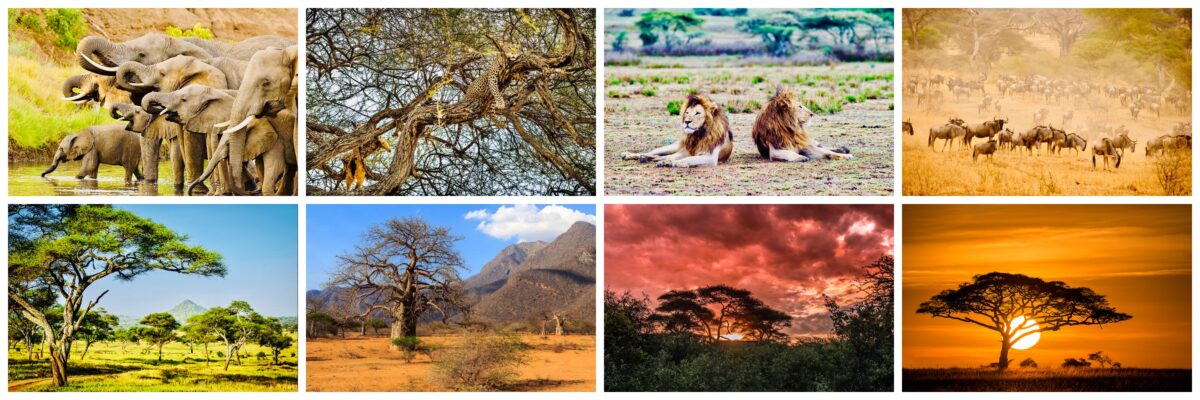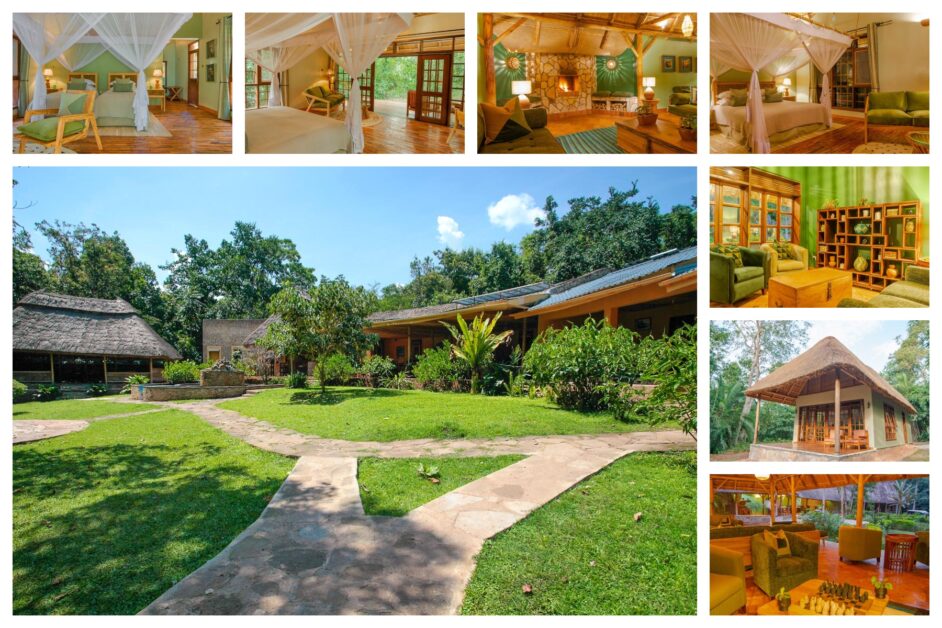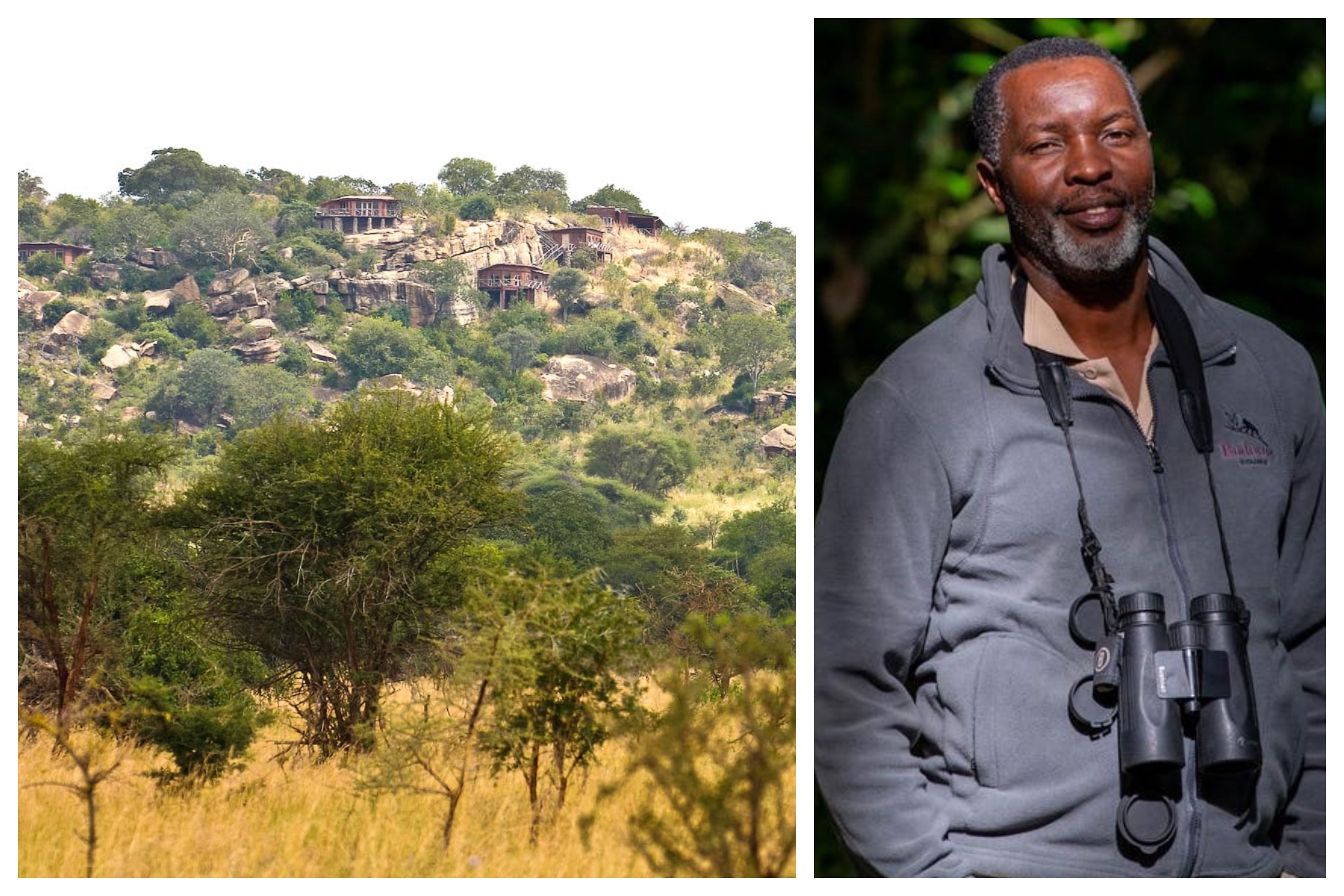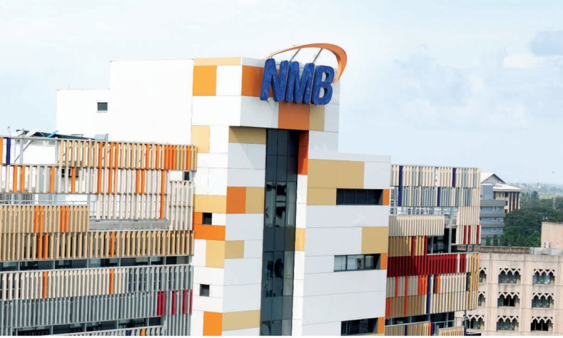Amos Wekesa, the Founder & Chief Executive Officer of the Great Lakes Safaris and Uganda Lodges has expanded his regional footprint, by acquiring a tourist lodge next to Tarangire National Park, in Northern Tanzania, CEO East Africa Magazine can exclusively reveal.
In an interview with CEO East Africa Magazine, Mr. Wekesa confirmed that he had indeed acquired Boundary Hill Lodge and work was going on to refurbish and expand it to a high-end tourist lodge.
“The lodge we are taking over is called Boundary Hill Lodge. We have been chasing it since 2015. It is about 600 metres from the boundary of the park (Tarangire),” Mr. Wekesa told the CEO East Africa Magazine in an interview at his Mutungo Hill offices.
“The lodge was built about 30 years ago and partly funded by the World Bank. It is owned by the community and has been run by different individuals over time. We have a lease of 50 years,” he said.
“We have been chasing that investment since 2015. However, we only signed an agreement on the 8th of December 2023 and were handed the project on January 08th 2024,” an exuberant Wekesa told the CEO East Africa Magazine, adding: “We have started construction and refurbishment. I have about 70 people on site. I have gotten a Tanzanian contractor and we are giving the place a facelift- putting up a pool, breaking down some things, and constructing a few other facilities. There is quite a lot of work going on. We shall be putting up about 16 high-end rooms, for about USD1500 a night”.
“We expect that between May and June, we shall start having some soft openings and product testing and by July we can be fully open for clients. The whole place should be ready by 1st July 2024,” Wekesa said.
When we asked him, what attracted him to Tarangire, Wekesa said that Tarangire is part of the famous northern tourist circuit that is very popular with tourists seeking adventure.
“Tarangire National Park is famous for elephants, but there are many other animals in the national park such as eland, giraffes, lions, buffalo, cheetahs, leopards and zebra. It is also famous for its spectacular natural savanna landscapes decorated by huge baobabs. It also has a good number of birds,” he told us.
The Northern Tourism Circuit also includes the Lake Manyara National Park which is known to have tree-climbing lions as well as Kilimanjaro National Park, which is known for Mt. Kilimanjaro, the highest Mountain in Africa. Also on the circuit is the Arusha National Park whose key highlight is Mt. Meru as well as Mkomazi National Park to the north-east of the Country near the Kenyan border.

“Where we are investing, is within a conservation management area, which itself is a corridor between Tarangire National Park and Lake Manyara National Park for the translocation of elephants between the two parks,” he said.
And the lodge we are taking on has got some of the best views of Tarangire National Park. It is on a rock/hill. We are going to call it Mwamba Lodge,” he intimated.
Mwamba is Swahili for a rock/hill.
He also said his company had acquired land near Arusha International Airport where they are going to develop 16 high-end cottages, an adventure park and serviced apartments.
“Arusha is positioning itself as a regional conference centre. We are targeting to tap into the opportunities and accommodation for the expatriates and conference delegates,” he said.
Purely a business decision
The businessman runs and owns Great Lakes Safaris, a travel company specializing in tailor-made and set departure safaris and holidays in East Africa. He also runs Uganda Lodges, a hospitality entity that owns and operates Elephant Plains Lodge and Simba Safari Camp on the edges of Queen Elizabeth National Park as well as runs MV Kazinga, a luxury boat service on the Kazinga Channel, between Lakes George and Edward in Queen Elizabeth National Park.
Uganda Lodges also runs Primate Lodge Kibale in Kibale Forest National Park and Budongo Eco Lodge, in Murchison Falls National Park. Café Kibale, in the middle of Kibale National Park, is a community initiative under the Great Lakes Foundation set up with a major aim of training the youth in the communities around the park with valuable experience in the hospitality sector for free and later feed them into the country’s growing tourism industry.
The Tanzanian lodge will be run under a company called Mwamba Lodge Tarangire Limited while the Tanzanian travel business will be run under a new company called Great Lakes Adventures Ltd.
CEO East Africa Magazine asked Wekesa, who is an outspoken campaigner for investing in Uganda why he was preaching water but drinking wine, but he said this was “purely a business decision”.
There are times that I feel that here in Uganda we talk too much; more than we are doing. I love Uganda so much, but the truth is that I’m in Tanzania because there is business,” he said.
“Tanzania is targeting 5 million tourists by 2025 and USD 5 billion in earnings. Figures released this week show that their tourism rebounded big time, with a 24.3% increase in visitors to touch 1.8 million visitors, making tourism the biggest forex earner- at a record USD3.37 billion, closely followed by gold at USD3 billion,” he said.

“When you’re in Tanzania and you wake up in the morning, for example at Karatu, Arusha and you stand in one position, in about an hour you can count about 500 safari cars in the mornings. It is a scene to behold. In Arusha, I think, every third card is a safari car. Where we have invested- in Tarangire, there are about 45 lodges with rooms ranging from 50- 75 -120 rooms. That is more rooms than we probably have in all our national parks in Uganda combined,” he confessed.
“Right now, if you try to get a room between June and October, you can hardly find a room. It is all booked. We are already getting bookings and inquiries even before we finish. June-July-August is Crazy. Every lodge on the northern circuit is full. But there are also day visitors because Tarangire is just about 120 kilometres from Arusha,” Wekesa says.
But even more importantly he said that the thriving tourism industry in Tanzania presented untapped opportunities for the Ugandan tourism industry; opportunities that he sought to unlock.
“The other reason we are going to Tanzania is that it presents vast opportunities between Uganda and Tanzania. I have for example spoken to a new airline that is coming here from Tanzania very soon. It is small, but with very new planes and a hunger to succeed. We are discussing departures, out of Tarangire National Park straight to Ugandan national parks. And we’re going to work with many Ugandan tour operators who want to cross-sell. The tour operators in Tanzania have no understanding of Uganda whatsoever. No one has gone there and tapped into them. No one. No one,” Wekesa reiterates.
“The amount of opportunities for Uganda to tap into Tanzania is massive. That’s one of the reasons why we’re going there. There is a lot of opportunity for us to cross-sell as well as increase the number of days and nights that tourists are staying in the region,” an optimistic Wekesa adds.

 I&M Select Banking Sapphire Club wins “Best Innovation of the Year” at UMEAS 2025
I&M Select Banking Sapphire Club wins “Best Innovation of the Year” at UMEAS 2025


